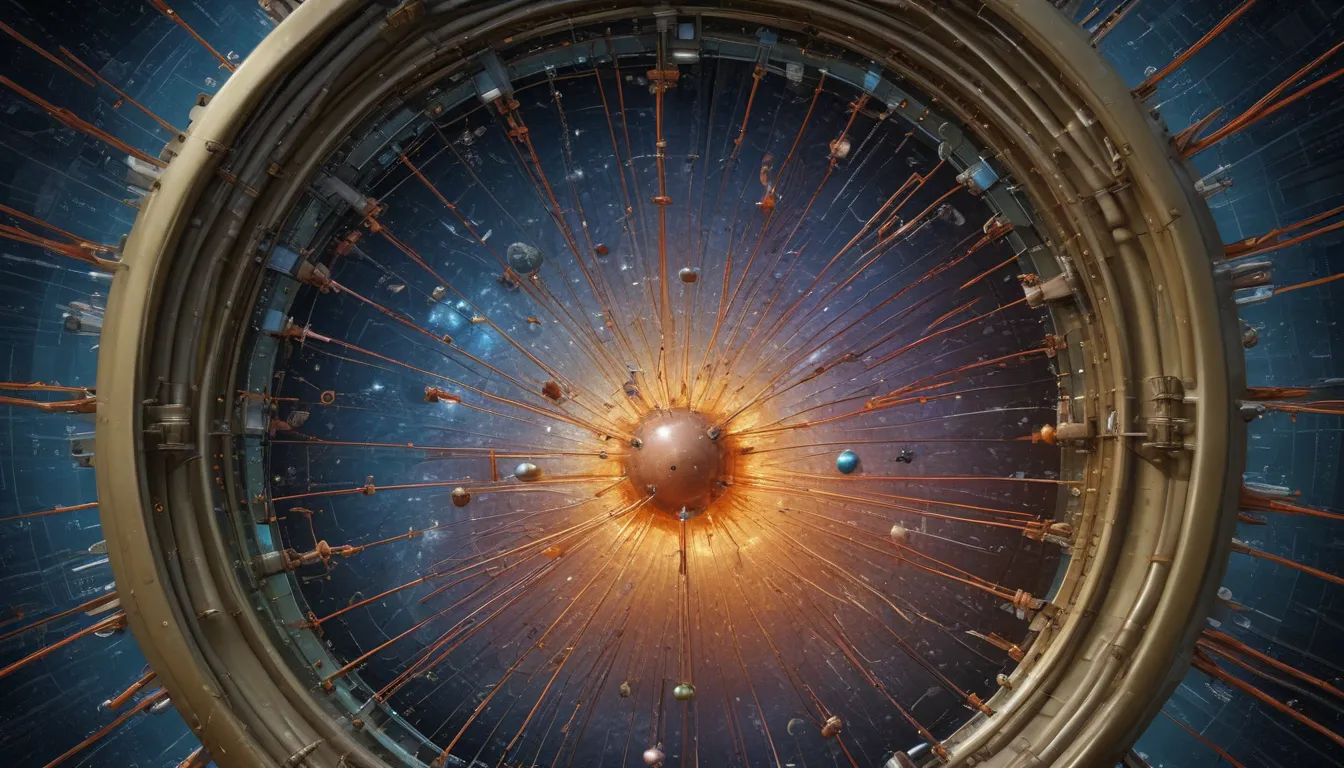A Note About Images: The images used in our articles are for illustration purposes only and may not exactly match the content. They are meant to engage readers, but the text should be relied upon for accurate information.
The Higgs boson, famously known as the “God particle,” has captured the attention of both the scientific community and the general public with its enigmatic qualities and profound implications. Named after physicist Peter Higgs, who initially proposed its existence in 1964, the discovery of the Higgs boson in 2012 at the Large Hadron Collider (LHC) in Switzerland marked a pivotal moment in the field of particle physics.
Unveiling the Mysteries of the Higgs Boson: Mind-Blowing Facts to Know
-
The Higgs Boson’s Origins: The concept of the Higgs boson was first introduced by physicist Peter Higgs in 1964, suggesting the existence of a particle that could elucidate how other particles acquire mass.
-
Discovery at the LHC: The Higgs boson was finally detected in 2012 at the Large Hadron Collider, the world’s largest and most powerful particle accelerator, located at CERN in Switzerland.
-
Massive Weight: With a mass of roughly 125 giga-electronvolts (GeV), the Higgs boson is acknowledged as one of the heaviest fundamental particles identified.
-
The Higgs Field: This field, connected to the Higgs boson, interacts with particles to provide them with mass, akin to objects traversing molasses facing resistance.
-
Decay and Interaction: The Higgs boson, although short-lived, disintegrates within around 10^-22 seconds, generating other particles that offer insights into its interactions with the universe.
Unveiling the Significance of the Higgs Boson: A Key Player in Particle Physics
-
Confirmation of the Higgs Field: The detection of the Higgs boson validated the existence of the Higgs Field, a pervasive force responsible for lending particles their mass.
-
Support to the Standard Model: By adhering to the principles of the Standard Model of particle physics, the discovery of the Higgs boson has enhanced our comprehension of the universe’s fundamental constituents and forces.
-
Boson Classification: As a boson, the Higgs boson conforms to Bose-Einstein statistics, possessing integer spin and unique attributes.
Unraveling the Complexities of the Higgs Boson: Journey into Subatomic Physics
The Higgs Boson, with its intricate properties and pivotal role in the cosmic framework, has sparked numerous questions and avenues for exploration. Scientists worldwide are intensively studying this engrossing particle to unravel the enigmas of mass in the universe and delve deeper into the fabric of reality.
Exploring the Implications of the Higgs Boson Discovery
The unveiling of the Higgs boson at the LHC has not only substantiated the theories of particle physics but has also paved the way for technological advancements and tantalizing prospects in theoretical research. Delve into the profound impact of this discovery on our understanding of the universe’s intricacies and the mysteries that lie beyond.
Conclusion: Embracing the Wonders of the Universe
In essence, the Higgs boson, known as the “God Particle,” transcends mere terminology to embody a profound revelation in the realm of physics. Its existence symbolizes a leap forward in humanity’s quest to comprehend the universe’s fundamental principles and dynamics. As we navigate the captivating realm of particle physics, the Higgs boson stands as a beacon of insight and inspiration, fostering a deeper appreciation for the fabric of reality itself.
FAQs: Answers to Your Burning Questions on the Higgs Boson
-
What is the Higgs Boson?
The Higgs Boson is a subatomic particle discovered in 2012 that bestows mass upon other elementary particles. -
Why is it dubbed the “God Particle”?
The moniker “God Particle” originates from the pivotal role of the Higgs boson in the universe’s structure and the challenges in its detection. -
How was the Higgs Boson discovered?
Through meticulous analyses of collision debris at the Large Hadron Collider in Geneva, Switzerland, scientists unveiled the presence of the elusive Higgs boson. -
What does the discovery signify?
The detection of the Higgs boson endorsed the existence of the Higgs field and validated the Standard Model of particle physics, offering profound insights into mass origination. -
Are there practical applications for the Higgs Boson?
While immediate practical uses are absent, the study of the Higgs boson could herald future technological breakthroughs and deepen our comprehension of the cosmos. -
What unresolved queries surround the Higgs Boson?
Despite its discovery, mysteries persist regarding the Higgs boson’s characteristics and interactions, driving ongoing investigations to illuminate its cosmic significance.
As we continue to unravel the mysteries of the universe, let the journey into the realm of the Higgs boson guide us toward deeper revelations and a profound understanding of the cosmos’s intricate tapestry.






